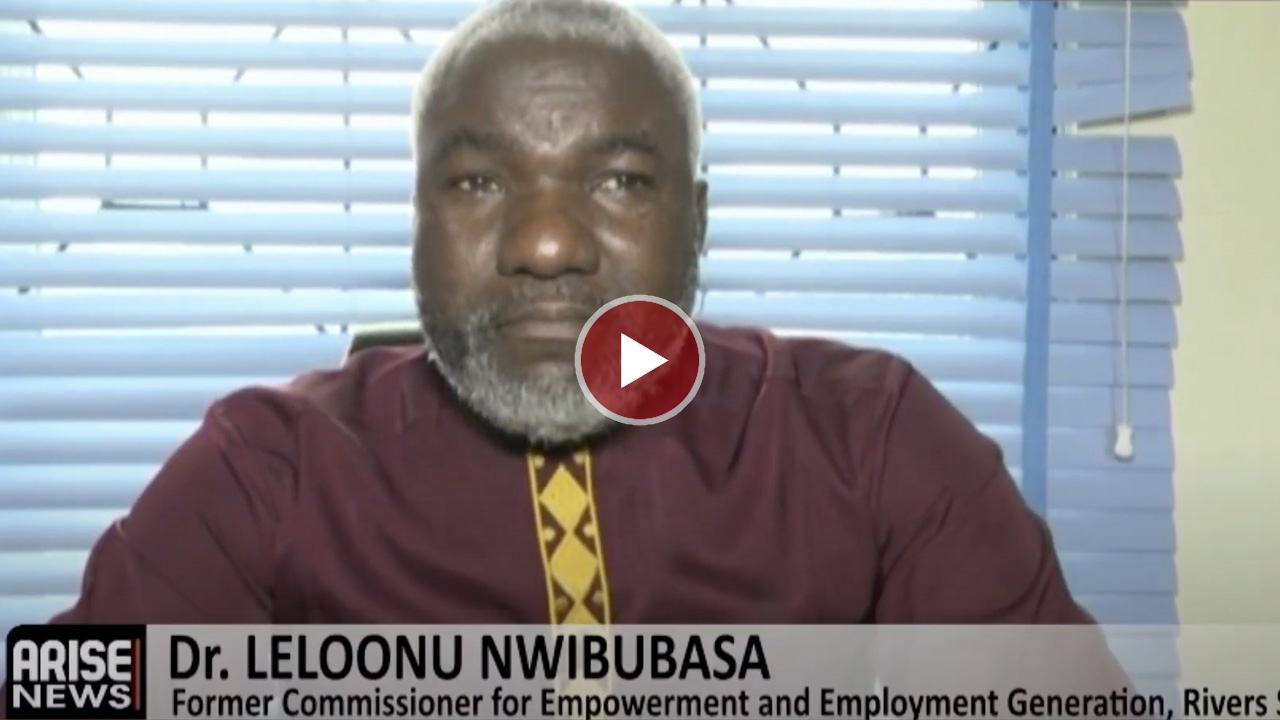The prospect of oil exploration returning to Ogoniland after nearly two decades has stirred both optimism and deep concern among residents, Former Rivers State Commissioner for Empowerment and Employment Generation, Dr. Leloonu Nwibubasa, has warned that resumption must be tied to environmental justice, political fairness, and tangible community benefits.
Speaking in an interview with ARISE NEWS on Friday, Nwibubasa stated that the announcement by the National Security Adviser that oil production would soon restart creates both fear and faith among the Ogoni people.
“Fear because the Ogonis have gone through a lot as a result of their natural resources the fact that they could not even benefit, and yet the government, the military government, descended heavily on Ogoni, leading to quite a lot of loss of life.”
“Faith, because oil is a natural resource given to us by God. It is under our water, under our houses, under the graves of our ancestors. If you must come to desecrate those graves, relocate people, pollute our waters and re-pollute again, there must be concrete understanding.”
Nwibubasa stressed that oil companies and the federal government must meet internationally recognised protocols for re-entry into Ogoniland.
Pointing to the ongoing Hydrocarbon Pollution and Remediation Programme (HYPREP) launched in line with United Nations Environment Programme (UNEP) recommendations as a critical prerequisite for any new drilling. “That process is still ongoing, and there has been no re-evaluation as to say this is how far this cleanup has gone. These are all issues that must be put into perspective even before talking about oil exploration in Ogoniland.”
On Shell’s controversial history in the region, Nwibubasa asserted, “The Ogonis once declared Shell persona non grata. I don’t even know if Shell is still in Nigeria. I heard that the Renaissance has taken over the operations. The truth is, if you want to come back to Ogoniland to start oil exploration, you must engage with the people, and that process of engagement must lead to solid negotiation.”
He criticised what he called tokenistic benefits from resource exploitation. “Sometimes we look at it and it’s laughable that somebody carries the entirety of your coat and removes a button and tells you to manage the button. What will the button do for you when you are taking away your source of comfort?”
According to him, the Ogoni people have been consistent in their demands, environmental remediation, a fair share of revenues, and political autonomy to decide how those resources are used. “We have asked for a border state. A border state gives us that political autonomy to use the resources that will come out from oil exploration and not be part of an omnibus system where you are told that a 13% derivation or a 3% PIA consensus of those communities is being given to,” he said.
Nwibubasa painted a grim picture of the current state of Ogoniland’s economy and infrastructure, “The Ogoni people suffer the worst economic situation as of today. We don’t have an industry running in the place. The refineries and the petrochemical industry you can’t find any Ogoni person at the echelon of administration in any of these facilities. Even the road that leads into Ogoni, from Port Harcourt, Eleme Junction into Ogoniland, is deplorable and unpassable.”
On HYPREP’s work, he confirmed some progress but questioned sustainability and funding. “We are part of the stakeholders that meet with HYPREP from time to time. As at the last stakeholders’ meeting, I personally asked the board chairman about funding. I was told that the first $1 billion provided by Shell is still running and that money has not finished. There was no mention of the federal government bringing their own counterpart funding.”
While acknowledging HYPREP’s training and livelihood programmes, he warned, “My question has always been on sustainability not a one-off training. You give people take-off packages and there’s no proper monitoring to ensure these things are sustainable.”
Asked whether Shell could ever regain acceptance in the region, he replied, “I don’t see Shell becoming a darling of the Ogoni community. Is Shell the only company that has the technical know-how to drill oil? Are there no other companies in Nigeria that can drill oil in Ogoniland? Are there no experts in Ogoni that can come together and set up a company to work with others to ensure that our oil is tapped?”
For Nwibubasa, the key to resolving the stalemate lies in sincerity and inclusion. “The government must engage directly with our people. It is not about throwing statements into the air to say the oil resumption will start in Ogoni soon. There must be concrete, empirical reasons things people can look at and say the government is sincere and serious about oil resumption in Ogoniland,” he concluded.
Erizia Rubyjeana
The post Nwibubasa Says Oil Resumption in Ogoniland Requires ‘Concrete Understanding’ After Cleanup and Negotiations appeared first on Arise News.

